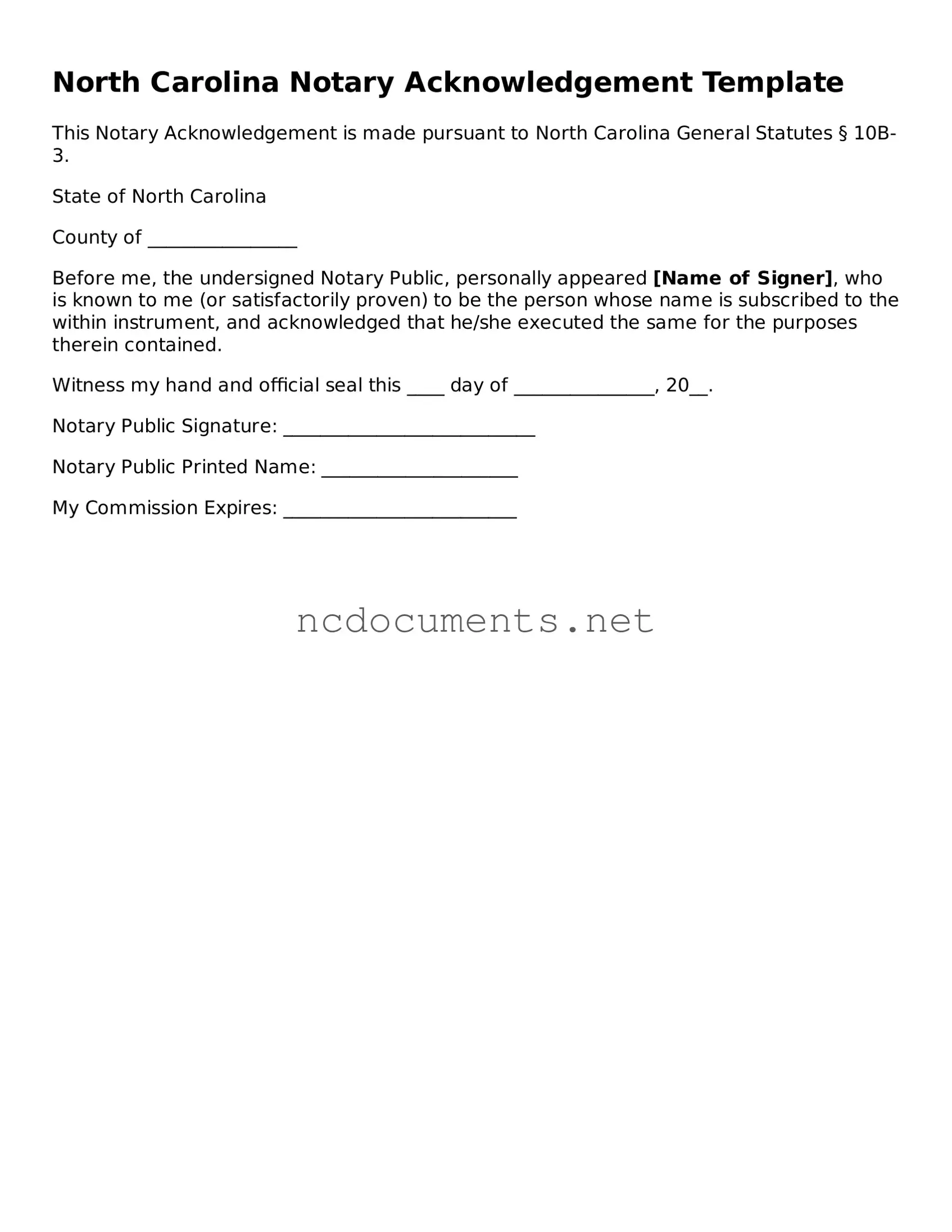Filling out a Notary Acknowledgement form in North Carolina can seem straightforward, but many people stumble on common mistakes that can lead to delays or even invalidations. Here are seven frequent errors to avoid when completing this important document.
One of the most common mistakes is failing to identify the signer correctly. The form requires the full name of the individual who is signing the document. Omitting middle names or using nicknames can create confusion and may render the acknowledgment invalid. Always double-check the name against an official form of identification.
Another frequent error is not including the date of the acknowledgment. This date is crucial as it indicates when the notarization took place. If the date is left blank, it can lead to questions about the validity of the document and may require additional steps to rectify the situation.
People often forget to sign the form themselves. While it may seem obvious, some individuals assume that the notary will complete everything. The signer must provide their signature in the designated area to confirm their identity and intent. Without this, the acknowledgment is incomplete.
Additionally, notaries sometimes make the mistake of failing to include their official seal or stamp. This seal serves as an essential verification of the notary's authority and the legitimacy of the acknowledgment. Ensure that the seal is clearly visible and properly affixed to the document.
Another common pitfall is not providing the correct type of identification. North Carolina law requires the notary to verify the identity of the signer using an acceptable form of ID. Using an expired ID or one that does not meet the state’s requirements can jeopardize the notarization process.
Many individuals overlook the importance of notarizing the document in the presence of the signer. The notary must witness the signing of the document to ensure that the acknowledgment is valid. If the notary is not present when the signer signs, the acknowledgment cannot be completed.
Lastly, people often neglect to read the instructions carefully. Each Notary Acknowledgment form may have specific requirements or sections that need attention. Skimming through the form can lead to oversights that complicate the notarization process. Taking the time to read and understand the form can save a lot of hassle later on.
Avoiding these common mistakes can help ensure that your Notary Acknowledgment form is filled out correctly, making the process smoother and more efficient. Always take a moment to review your work before submitting any legal documents.

